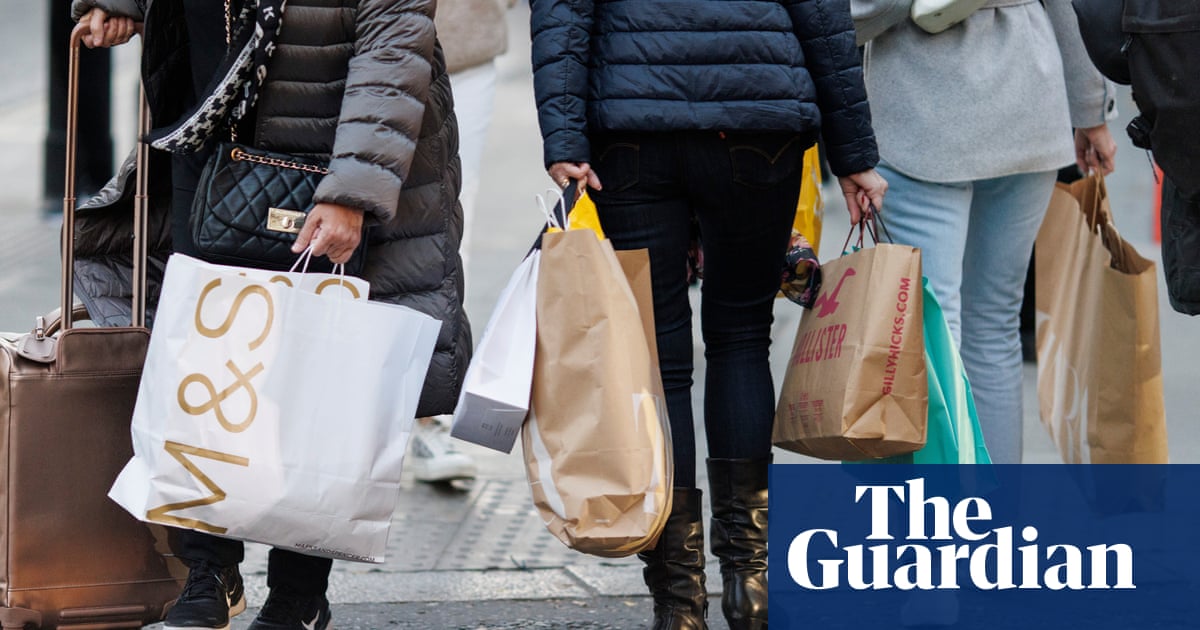
Closed changing rooms, one-way systems on the shop floor and restrictions on touching merchandise will greet shoppers when non-essential retailers reopen some stores next month.
Stores are following the example of supermarkets, DIY chains and furniture retailers which have been limiting the number of shoppers with queue systems as well as installing plastic screens and supplying face masks to staff.
But there will also be new developments under government rules, including quarantining goods that have been returned to stores for up to 72 hours before they can be placed back on shelves.
Some stores, including the bookseller Waterstones and the footwear chain Kurt Geiger, have said they will go further. Kurt Geiger will set aside shoes that have been tried on for 24 hours before another customer is allowed to try them. At Waterstones all books browsed by shoppers will be put to one side for 72 hours before going back on sale.
Some businesses may follow the lead of Asda, which has set up a virtual queueing system that allows shoppers to hold their spot in the line via a phone app. Aldi is installing traffic light systems at store entrances so that automatic doors open only when there is sufficient space inside.
John Lewis will reopen in phases its department stores in phases, which will operate with new safety measures including closed changing rooms and strict limits on the number of customers able to enter stores or use lifts and escalators. Cafes and “close-contact” beauty services, such as makeup demonstrations or eyebrow threading, will remain closed.
A spokesperson said: “The safety of our customers and partners will govern everything we do and we are prepared to readjust our plan and make changes as we go to make sure we get it absolutely right.”
Marks & Spencer, where food halls have been trading throughout lockdown, will open the majority of its non-food areas on 15 June. It said details of its plans were still being finalised but some services, such as bra-fitting, will not resume immediately.
Gary Grant, the owner of The Entertainer toy shop chain, said he was disappointed not to be able to open on 1 June, as the government had previously indicated might be the case.
Grant said the chain was setting up queue systems and offering click-and-collect online ordering. He said toy demonstrations and character visits were to be put on hold, adding: “We are having to review the way we retail.”
Grant said the experience at the groups’ franchise outlets overseas and stores in Jersey and the Isle of Man, which are now open, suggested shoppers would return. He added that online sales had increased by more than four times usual levels in recent weeks, with high demand for educational, craft and garden toys.
What’s new in store under new government guidelines
• Limits on the number of shoppers – with queuing facilities or mobile apps to manage visitors.
• One-way systems and limits on the number store entrances open to control the flow of shoppers and ensure physical distancing of 2 metres.
• Hand sanitiser or handwashing stations at store entrances.
• Customers encouraged to shop alone.
• Changing rooms, toilets and cafes closed.
• Services that require close contact, such as makeup demonstrations, manicures, personal styling or bra-fitting suspended.
• Shoppers will be discouraged from handling products while browsing and stock that is frequently touched could be regularly replenished with fresh items.
• Protective covers on large items such as beds or sofas that may be tested by shoppers.
• Quarantining items that have been returned, donated, brought in for repair or extensively handled – for example shoes or clothes that have been tried on – must be put in a container or separate room for 72 hours. Alternatively, items may be cleaned before being put back on display.
• Cleaning of rental equipment or test drive and rental vehicles after each customer use or handover.
• Perspex screens at tills to protect staff – and some may wear masks or visors.
• Additional car and cycle parking facilities to help discourage use of public transport.
• Staggered opening hours on high streets and in shopping centres to help with physical distancing and reduce pressure on public transport.












